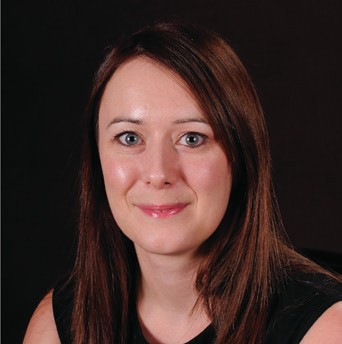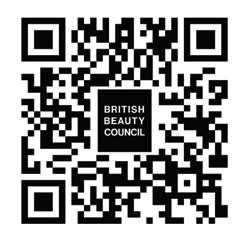BUSINESSMATTERS
Work against Waste
Scratch marks Recycle Week & Zero Waste Week with practical, planet-friendly pointers for your nail business
REBECCA HITCHON REPORTS
ZERO WASTE WEEK
: 1-5 September
This campaign promotes ways to preserve resources and reduce landfill waste.
RECYCLE WEEK
: 22-28 September
The world’s waste problem: does it feel like your issue too? While it might seem that the responsibility lies with big global players, we all have a part to play. Every year, 120 billion units of packaging are produced by the global cosmetics industry, according to the British Beauty Council’s
The Courage To Change
report. The 2020 publication shares a UN Environment Programme statistic: “If current levels of consumption continue, by 2050 there will be 12 billion tonnes of plastic in landfills, equivalent to 35,000 Empire State Buildings.” It’s time to act, and your contribution matters. In this article, we explore how you can reduce your impact by recycling and properly disposing of your nail business’ waste.
DATE FOR THE DIARY
“In March, the Sustainable Beauty Coalition launched the first iteration of The Great British Beauty Clean Up: an industry-wide initiative to promote increased recycling rates of beauty empties,” a spokesperson for the British Beauty Council tells Scratch. “More than 50 brands and businesses committed to tackling recycling challenges, dedicating time to educating consumers, incentivising in-store takebacks and even launching new iterations of their recycling schemes. The initiative will return in March 2026, and we welcome beauty brands and businesses to register their interest by emailing sbc@britishbeautycouncil.com.”
The importance of responsible waste disposal

Jess Rigg
“The beauty industry generates vast amounts of waste, which unfortunately tends to end up in landfill – even when it can be recycled,” shares Jess Rigg, operations & marketing manager at salon waste disposal company, Green Salon Collective. “A lot of salon waste can’t be avoided due to the nature of services, as well as health & safety needs. Recycling where possible can prevent environmental pollution and landfill waste.”

Serafim Duante
“Proper waste disposal is especially important for chemicals such as acetone and gel residue,” adds Serafim Duante, director of regulatory affairs & quality assurance at nail brand, Andreia Professional. “If these are poured down the sink or put in regular bins, they can harm the environment or pose health risks over time. Most areas also have regulations about how waste should be handled. Not following these rules can lead to fines or penalties.”

Nilofer Aydinli
“Embracing eco-friendly practices, such as reusing materials, can attract environmentally conscious clients,” adds Nilofer Aydinli, director of salon towel brand, Enki Towels. “These practices can also cut costs, as energy and water use may be reduced.”
“86% of plastic beauty packaging is not recycled. Of all packaging, only 14% of empties makes it to a recycling plant and ultimately, only 9% is actually recycled.”
British Beauty Council
The first step: an audit

Rebecca Waters
“A waste audit is key for beauty businesses, as it helps identify the types of waste being produced, and how they are segregated and packaged,” says Rebecca Waters, category manager for UK healthcare and infectious waste management service, Initial Medical. “If the audit shows that there is an item you are regularly disposing of due to expiry, you know to purchase it less frequently. If it reveals that you are regularly discarding packaging, you can focus on increasing your recycling processes. By understanding your waste streams and quantities produced, you can explore new ways to responsibly dispose of your business’ waste.”
Jess Rigg agrees that a waste audit is a crucial first step to improve a company’s environmental impact. “Check the packaging of the products you use, noting what is recyclable, and alternatives that can be reused or recycled. For example, could you use compostable towels?” she asks. “If you find a waste stream that can’t be recycled or reused, ask the supplier for disposal recommendations.”
“Showing that your salon takes care of its waste can build trust, enhance your reputation and set you apart in a competitive industry.”
Serafim Duante
Green Salon Collective
Responsibly disposing of salon waste has been made simple by Green Salon Collective. Businesses can buy a starter kit, which includes boxes for disposal of hair, metal and towels. These bins are lined with bags, which when full, can be placed in Return Boxes to be collected at a convenient time. The company offers free training sessions to help salons integrate its recycling, composting and waste energy solutions into their businesses.
Head to www.greensaloncollective.com for more information.

Larissa Hodgins
A note from Phorest
“A few years ago, we noticed that more beauty businesses across the UK and Ireland were joining Green Salon Collective, in its mission to create a circular economy. We were eager to amplify its message,” shares Larissa Hodgins, people program manager at salon software company, Phorest. “We know that specialist services come at a cost, so we introduced the Phorest Green Fee. This allows salons to add a small surcharge (typically £1–£2) to each client visit, to help cover the costs of responsible waste disposal with Green Salon Collective. It also gives clients a simple, visible way to support sustainability: something they increasingly expect from businesses.
“We have seen that most clients embrace the Green Fee,” Larissa continues. “It’s transparent and purpose-led, and thanks to Phorest Custom Fee feature, salons can automatically apply it to bookings, whether as a flat rate or percentage.”
Recycling
The Planet Positive Beauty Guide from the British Beauty Council’s Sustainable Beauty Coalition (SBC) was developed to decode environmental terms and offer sustainability advice related to the beauty industry. It suggests switching to products with minimal or no packaging, or packaging that can be recycled kerbside, such as glass, certain plastics, paper and cardboard. It stresses that products should be finished and washed out before being recycled, and any unwanted or unused products should be donated to charity shops, food banks or initiatives like Beauty Banks (www.beautybanks.org.uk) and The Hygiene Bank (www.thehygienebank.com).

Scan to read the Planet Positive Beauty Guide.

Maddy Ayers
“While some items can be collected and recycled by your council, some require more attention – such as nail product bottles and foils,” shares East London-based session stylist, Maddy Ayers of @maadnails. The nail pro has sat on the
Sustainable Beauty Coalition’s professional services taskforce, and was proactive in driving the SBC’s The Great British Beauty Clean Up campaign earlier this year. She continues: “These items can be sent to specialist recycling firms to be cleaned, processed and remoulded.
“The British Beauty Council is a great resource for information on this, including specialist recycling companies, take-back schemes and local recycling points.”

Scan to view the British Beauty Council’s map of take-back and recycling points.

Scan for the British Beauty Council’s list of recycling programmes for beauty businesses.
Serafim Duante shares how to responsibly dispose of common nail salon items:
• Plastic bottles, e.g. nail polish remover bottles: “These can often be recycled kerbside if empty and clean, but check your local council’s rules.”
• Glass bottles, e.g. nail polish bottles: “These can sometimes be recycled via local recycling centres if empty and clean, but contact them to find out.”
• Metal tools: “Place with metal recycling or donate to tool reuse programmes.”
• Disposable gloves, wipes and cotton pads: “These are usually not recyclable, so consider switching to reusable options.”
• UV lamp bulbs: “Treat as electronic waste and dispose at e-waste collection centres.”
Rebecca Waters adds that used, non-infectious PPE cannot be recycled, and should be discarded with offensive and hygiene waste, like sanitary items and nappies – according to NHS England. “Staff training is essential to help recognise opportunities to recycle, as is the support of a specialist waste management service,” she says.
“Embracing eco-friendly practices, such as reusing materials, can attract environmentally conscious clients. These practices can also cut costs, as energy and water use may be reduced.”
Nilofer Aydinli >>
SalonCycle
International recycling company, TerraCycle, brought its SalonCycle scheme to the UK last year, following a successful launch in the US. SalonCycle helps hair and beauty salons to divert hard-to-recycle waste from landfill and incineration. There are two SalonCycle recycling solutions: a Human Hair Composting Box and Mixed Salon Waste Recycling Box (for metal and plastic items like product containers, disposable gloves and masks). Businesses can order these to be shipped to them, then when full, send the boxes to TerraCycle using pre-affixed shipping labels. The company will sort, clean, process and remould the waste.
Visit www.saloncycle.co.uk to find out more.
Towel talk
“Although reusable towels may seem like a more sustainable option than disposable towels, this is not always the case,” reveals Enki Towels’ Nilofer Aydinli. “Reusable towels can contribute to more washing and drying, therefore water and energy use, while also posing hygiene risks by harbouring bacteria and potentially leading to cross-contamination between clients.”
Enki’s towels are produced from 100% natural and biodegradable materials, and can be recycled via composting or disposal in general waste. They break down in a few months, helping to reduce landfill waste and pollution. Find out more at www.enkitowels.com
Replant Towels launched in July: 100% plant-based towels from the people behind Green Salon Collective (GSC). They can be composted via GSC, and are then used to grow food and trees. While the brand advises using one towel per client, eliminating the risk of cross-contamination, it does suggest reusing the towels for non-client-focused tasks, such as salon cleaning. For every Replant Towels order placed, a tree is planted.
Learn more at www.replanttowels.com
“Consider becoming a paperless nail business to reduce waste. You can do this by using an online booking system, offering digital gift and loyalty cards and sending digital receipts.”
Nilofer Aydinli
Reducing waste
“Some items, such as couch roll, must be disposed of due to hygiene reasons, so opt for recycled and recyclable versions where possible,” advises Maddy Ayers. “Use metal tools that can be sterilised and reused, keeping any blades sharp to ensure a long life. Instead of disposing of files after one use, give them to the client to take home.”
The nail pro suggests not buying into every trend, to reduce waste. “While it’s tempting, try to only make purchases that will stand the test of time with clients,” Maddy details. “Streamlining your inventory is not only better for the planet, but your bottom line.”
Serafim Duante offers practical strategies to reduce salon waste, commenting: “Use items that can be reused where possible, for example reusable nail forms, as well as refills for products like acetone, sanitiser and lotion. Buy in bulk to reduce packaging waste and shipping emissions.”
“Consider becoming a paperless nail business to reduce waste,” adds Nilofer Aydinli. “You can do this by using an online booking system, offering digital gift and loyalty cards and sending digital receipts.”
Check out the British Beauty Council’s list of simple, planet-positive swaps for common beauty business materials.
Supply chain suggestions
Do the brands you use responsibly dispose of their waste, in turn boosting your business’ positive environmental impact? It’s crucial to check, says Maddy Ayers. “Working with brands whose practices align with your own not only reinforces your values, but can lead to real change in the industry,” she comments. “Research the sustainability credentials of your suppliers. If you have ideas for how they could improve, don’t hesitate to reach out and tell them.”
“Seek out suppliers producing biodegradable, recyclable and low-toxicity products, and using minimal packaging and carbon-neutral shipping,” adds Serafim Duante. “Also communicate your expectations to them, sharing that you want to minimise waste. It can influence their practices.”